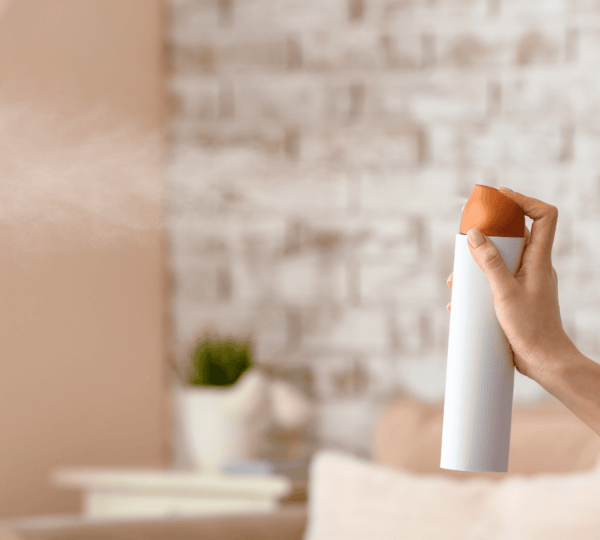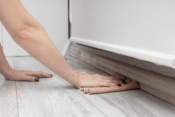
How to Remove Odors from Your Home: A Simple Guide for a Fresh Living Space
Have you ever come home after a long day, expecting to relax, only to be greeted by a mysterious, unpleasant smell? It happened to me once. I had returned from work with a colleague who came to pick up an item I got for her, but as soon as I opened the door that evening, an odd odor hit me. I couldn’t pinpoint what it was—maybe a forgotten trash bag or that leftover fish dinner from days ago. But I quickly realized that my cozy home wasn’t feeling fresh, and it made me uncomfortable. I wondered, if I’m noticing this, what will my guest think?
Like many of us, I had never thought much about home odors until that moment. Odors can build up gradually, becoming part of the background of everyday life until someone else points them out—or in my case, until a planned gathering brings them to the forefront. But you don’t have to live with these smells, and I’m here to show you how you can easily remove odors from your home, making it a more welcoming and pleasant place for yourself and your guests.
1. Identify the Source of Odors
Before you can eliminate unwanted odors, you need to identify where they’re coming from. Common sources of odors in the home include:
- Trash Cans: Leftover food and organic waste can cause your trash cans to smell awful. Even if you take out the trash regularly, residue can linger.
- Kitchen Appliances: Refrigerators, ovens, and microwaves often harbor lingering food smells. These odors can cling to surfaces if spills aren’t cleaned up immediately.
- Pets: While we love our pets, they can sometimes bring their own unique smells into the home—from litter boxes to wet fur.
- Carpets and Rugs: Carpets trap odors from spills, pets, and foot traffic.
- Bathrooms: Humidity and poor ventilation can lead to musty odors, especially from towels, drains, and mold growth.
According to Dr. Charles Gerba, a microbiologist at the University of Arizona, “Odors are often caused by bacteria and fungi that thrive in warm, moist environments like kitchens and bathrooms.” Dr. Gerba has conducted extensive research on household bacteria and is considered an expert in how microbes contribute to home odors. His advice? “Addressing the root cause—often hidden bacteria—will make your odor removal efforts more effective.”
2. Ventilation is Key
One of the simplest ways to remove odors from your home is by improving air circulation. Stale air tends to trap smells, so keeping your home well-ventilated can make a big difference.
- Open Windows: Fresh air can do wonders for removing bad odors. Whenever possible, open your windows and doors to let air circulate.
- Exhaust Fans: Use exhaust fans in areas prone to moisture, such as the bathroom and kitchen. This helps remove steam, which can carry odors.
- Air Purifiers: If you live in a climate where opening windows isn’t always an option, consider using an air purifier with a HEPA filter. These filters can trap odor-causing particles in the air, leaving your home smelling fresher.
According to a 2022 study published by the National Institute of Environmental Health Sciences (NIEHS), homes with poor ventilation are more likely to retain musty, unpleasant odors. The study also noted that air quality improved significantly when households used natural ventilation methods like opening windows or used air purifiers regularly.
3. Clean Regularly with the Right Products
Odors can linger when surfaces are not cleaned properly, so using the right cleaning products can help eliminate unwanted smells at the source.
- White Vinegar: White vinegar is a natural deodorizer. You can use it to wipe down surfaces, clean the inside of your refrigerator, or even as a fabric softener alternative in your laundry.
- Baking Soda: Known for its odor-absorbing properties, baking soda can be sprinkled on carpets before vacuuming, added to trash cans, or placed in refrigerators to neutralize smells.
- Enzymatic Cleaners: For pet odors, enzymatic cleaners are incredibly effective. These cleaners break down the organic material causing the smell, such as pet urine or vomit, making them ideal for carpets and upholstery.
Cleaning expert and author Melissa Maker of the blog Clean My Space emphasizes the power of natural cleaners like vinegar and baking soda. “These products work wonders because they neutralize odors rather than masking them. Baking soda, in particular, absorbs and traps smells, making it perfect for tough odor spots.”
4. Eliminate Odors with Activated Charcoal and Coffee Grounds
Some household materials are natural odor absorbers. You can place them around your home in strategic locations to help soak up bad smells.
- Activated Charcoal: This material is highly porous and works by trapping airborne particles. You can buy activated charcoal in bags or pellets, and place them in areas prone to bad smells, such as near litter boxes or in musty closets.
- Coffee Grounds: If you’re a coffee lover, you may already know this trick. Coffee grounds are excellent at absorbing smells, especially in the kitchen or refrigerator. Simply place some used coffee grounds in a bowl, and let them work their magic.
A 2021 study published in the Journal of Environmental Engineering found that activated charcoal effectively reduced volatile organic compounds (VOCs), which are chemicals that can contribute to household odors. The study recommended activated charcoal as a non-toxic solution for homes looking to improve indoor air quality.
5. Use Essential Oils for a Natural Fresh Scent
Once you’ve removed the source of odors, adding a pleasant scent to your home can make it feel more inviting. Essential oils are a natural and non-toxic way to freshen up your space.
- Lavender Oil: Known for its calming properties, lavender oil can be diffused in rooms where you want a relaxing atmosphere.
- Lemon Oil: Lemon essential oil has a fresh, clean scent and can be used in kitchens or bathrooms. You can add a few drops to your cleaning water or even mix it with vinegar for an extra boost.
- Eucalyptus Oil: Great for neutralizing musty odors, eucalyptus oil can also help open up your sinuses, making it perfect for bathrooms and bedrooms.
Aromatherapist and wellness expert Claire Rodgers suggests using essential oils not only for their pleasant smells but also for their air-purifying benefits. “Essential oils like eucalyptus and tea tree oil have antimicrobial properties, meaning they can actually help kill some odor-causing bacteria.”
6. Preventing Future Odors: Maintenance is Key
The best way to keep odors at bay is to prevent them from building up in the first place. Regular maintenance is key.
- Change Air Filters: Replace HVAC and furnace filters regularly to prevent dust and particles from circulating through your home.
- Clean Drains: Pouring boiling water or a mixture of vinegar and baking soda down your drains once a month can prevent buildup that causes bad smells.
- Wash Fabrics: Upholstery, curtains, and bedding can absorb odors over time. Wash them regularly and, if possible, air them out in the sun, which is a natural deodorizer.
Conclusion
Unpleasant odors don’t have to be a permanent fixture in your home. By identifying the source, using proper ventilation, cleaning regularly, and incorporating natural odor absorbers like baking soda and activated charcoal, you can create a fresher, more welcoming living environment. And with the added touch of essential oils, your home will not only smell fresh but feel inviting.
References
- Gerba, C. (n.d.). Expert Advice on Household Bacteria. https://west.arizona.edu/person/charles-gerba
- National Institute of Environmental Health Sciences (NIEHS). (2022). Study Links Poor Home Ventilation to Musty Odors. https://cppwind.com/poor-ventilation-design-can-cause-indoor-odor-problems/
- Maker, M. (n.d.). Clean My Space. https://cleanmyspace.com/
- Journal of Environmental Engineering. (2021). Activated Charcoal for Odor Reduction. https://nepis.epa.gov/Exe/ZyPURL.cgi?Dockey=9101R9AQ.TXT
- Rodgers, C. (n.d.). Aromatherapy Expert Claire Rodgers.
https://www.rodgerswellness.org/services-5












